If you’re as chronically online as I am, you know the meme, and as I’ve been playing Dragon Age: The Veilguard, I can’t stop thinking about it. Originating from a video skit where a woman refuses to laugh at the Four Seasons Orlando Baby because there are worse things happening in the world, the phrase has largely been used as an anti-intellectual cudgel against any kind of remotely sociologically critical social media post. It’s used to deem people party poopers for caring about things, mostly.
I much prefer the way it’s used by people who declare themselves ‘the friend that’s too woke’, because I am that friend that’s too woke. I think it’s intellectually lazy to complain about people having critical thinking being ‘too woke’ because they say that your words or actions might be offensive. I am the friend who rolls their eyes when people talk about using ChatGPT to write their emails, the friend who boycotts brands out of solidarity, the friend who corrects people when they misgender someone. People pejoratively call me woke all the time, and I don’t consider it a mark of shame.
The Veilguard, though, is woke in a bad way, because it’s so terrified of being offensive that it erases everything interesting about Dragon Age.
If you clicked on this thinking I was going to be complaining about pronouns, joke’s on you, and thanks for the view.
What Does It Mean To Be Too Woke?
There’s something to be said about people who act entirely out of a fear of being offensive and take themselves so seriously that they scrub all nuance out of their interactions. This is a highly subjective and personal thing, but I feel most accepted for who I am when my friends can joke about my intersectional identities.
It’s funny when I send a picture of a woman with the caption “she’s so beautiful” to the group chat and I get a string of replies of just the word “gay”. It’s funny when my partner calls me “nobby” as short-hand for non-binary. It’s funny when I talk about being biracial or bisexual and my friends tell me to “pick a side”. That’s the spirit of good comedy: good-spirited ribbing is an acknowledgement that they see me for what I am, and they’re going to lovingly bully me anyway.
It’s this nuance that separates being socially conscious from being entirely self-serious, and it’s that self-seriousness that permeates through The Veilguard and makes it entirely flavourless.
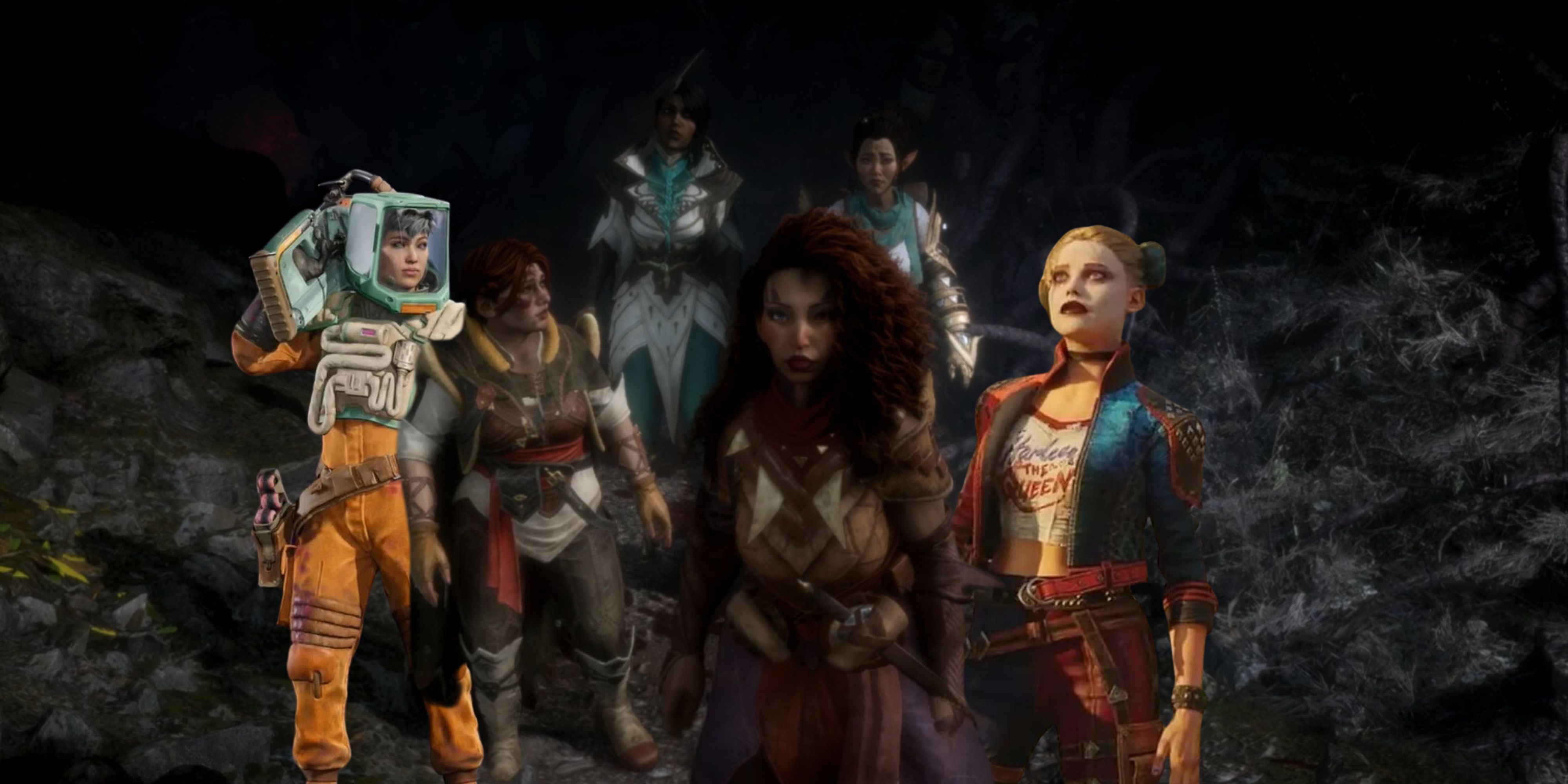
Related
Dragon Age: The Veilguard Could Save So Many Studios
The Veilguard offers a way forward to games trapped in lie-service development.
The Veilguard Only Has Good Guys
As many people (including our own James Troughton) have already complained, every member of the Veilguard gets along too well, even when they really shouldn’t. Everybody is nice to each other, and disagreements are smoothed over quickly, if there are any. Everybody is self-sacrificing and noble, and none of them have controversial beliefs.
Lucanis, the mage-killer, and Neve, the mage, get along just fine, even though they have plenty of reasons to be wary of each other. Lucanis is also possessed by a demon, which historically can lead to catastrophic consequences, but nobody seems to mind.
Your Rook is just as inoffensive, never saying anything that could step on anyone’s toes. Any dialogue you choose is going to be basically the same. Jokey responses are never sarcastic or mean-spirited. Aggressive responses are never hostile, just resolute. You can’t pick fights with your companions – you can’t even really lose approval with them because of the way the game is designed.
Every Faction Is Scrubbed Of Flaws
There’s already a total lack of interpersonal conflict in the game because these characters are generally totally lacking in negative traits, which in turn makes them completely yawn-worthy. But this attitude extends into Dragon Age’s copious lore.
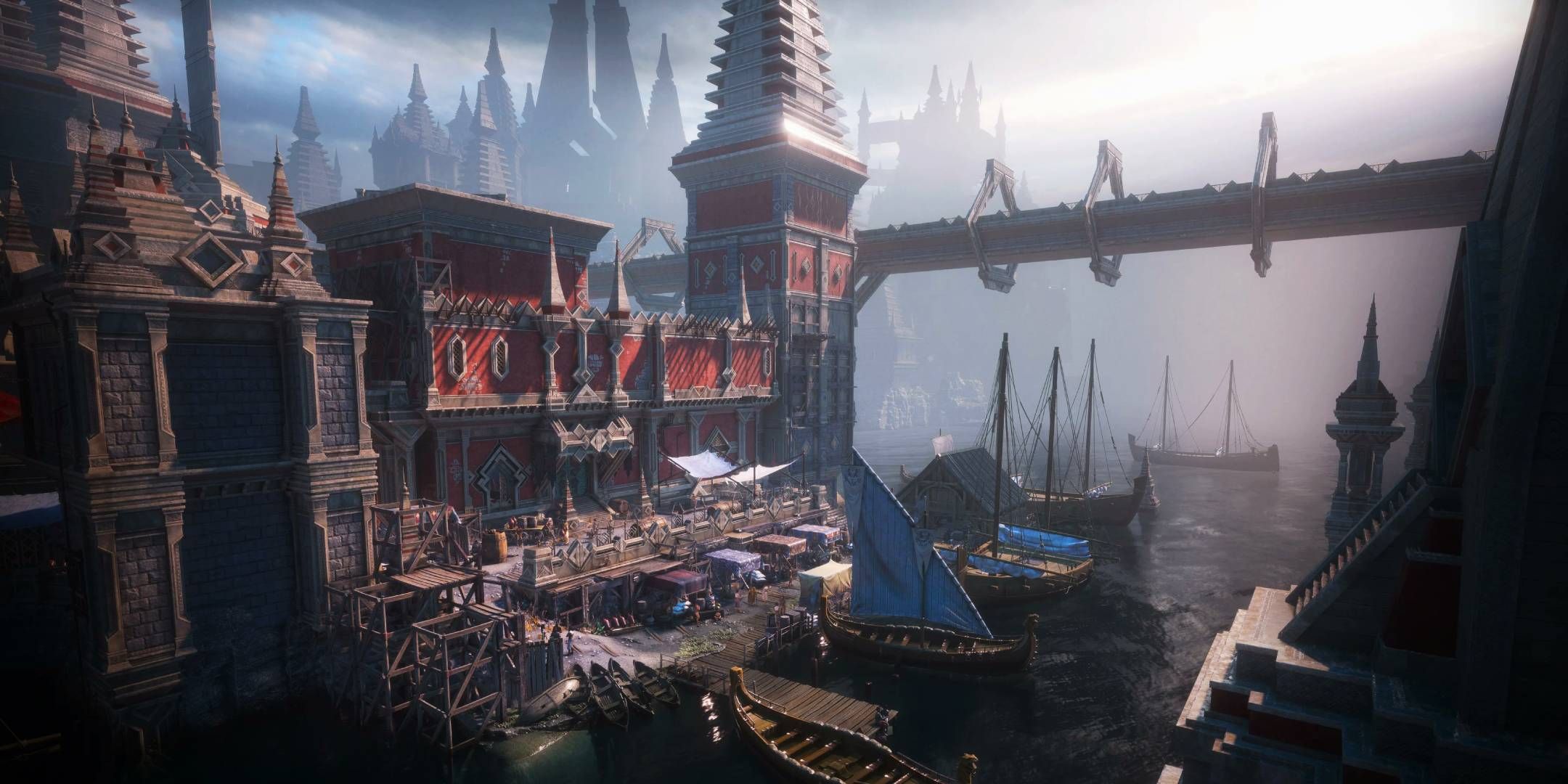
Related
Modern Dragon Age Does Not Deserve Tevinter
Dragon Age: The Veilguard lacks the nuance to do Minrathous justice.
For example, the Antivan Crows have long been portrayed as a very morally grey faction. They’re cutthroat and care only about coin – in Origins, the companion Zevran (my favourite character) can be recruited after he fails to assassinate you. He reveals that the guild is formed largely of child slaves who were bought and then tortured and abused into becoming cold-blooded killers.
In The Veilguard, these actions are never acknowledged or discussed. Instead, they’re freedom fighters who resist the Antaam and protect their city, and only take contracts on people they deem to be evil. This change in morality is never explained, nor does Lucanis ever talk about the abuse he canonically would have faced growing up. One of the most thematically interesting traits of the Crows is wiped entirely from the game in order to make them inoffensive and morally good.
Then there’s the Lords of Fortune, a group that is very pirate-coded. They’re treasure hunters who are based on the coast – you know, pirate stuff. We know that they do steal stuff, because Dragon Age: Tevinter Knights tells us so in Herold Had the Plan, where a trio of Lords attempt a heist.
But when Rook jokingly tells Taash not to steal anything from the Lighthouse, Taash informs them that the Lords of Fortune don’t actually steal things, they only take stuff that has no owner. They even go out of their way to return cultural artefacts to their original homes, like some kind of reverse Lara Croft. Any moral ambiguity is entirely erased, when it could have added complexity to Taash’s character.
No Racism, No Problem
Then there’s the issue of attitudes towards elves, which seems to have been totally ignored. The game’s Dalish characters, who are traditionally suspicious of outsiders, seem completely unbothered by their new roles in staving off the end of the world at the hands of their own gods. And nobody seems to hate elves anymore – where before I’d get called “knife-ears” by random people, barely anyone acknowledges my Rook’s race at all.
Origins had a very moving section about the conditions of elves in Denerim’s alienage, a slum where elves were segregated, and this discrimination has been a major factor in the series’ worldbuilding. It made me very sad the first time I played it, and it had a far more revolutionary message than anything The Veilguard has managed. That racism was interesting. Why was it removed?
Worse is the fact that Inquisition ended with elves from all backgrounds joining Solas in his quest. This racial tension would have been the perfect seed for a game that explores the complexities of nationalist/ethnic movements and the principle of self-determination, which could have made for an incredibly interesting game, if done well.
But in The Veilguard, that’s retconned. Solas acted alone, and every elf you meet is in agreement with you: Evanuris bad, Rook good. No racial tensions, no disagreements – every character feels and wants the same thing. There are no metaphors here, no complexities, and no nuance. There’s a good side and a bad side, and you’re always going to be on the good side because all your friends are innately good.
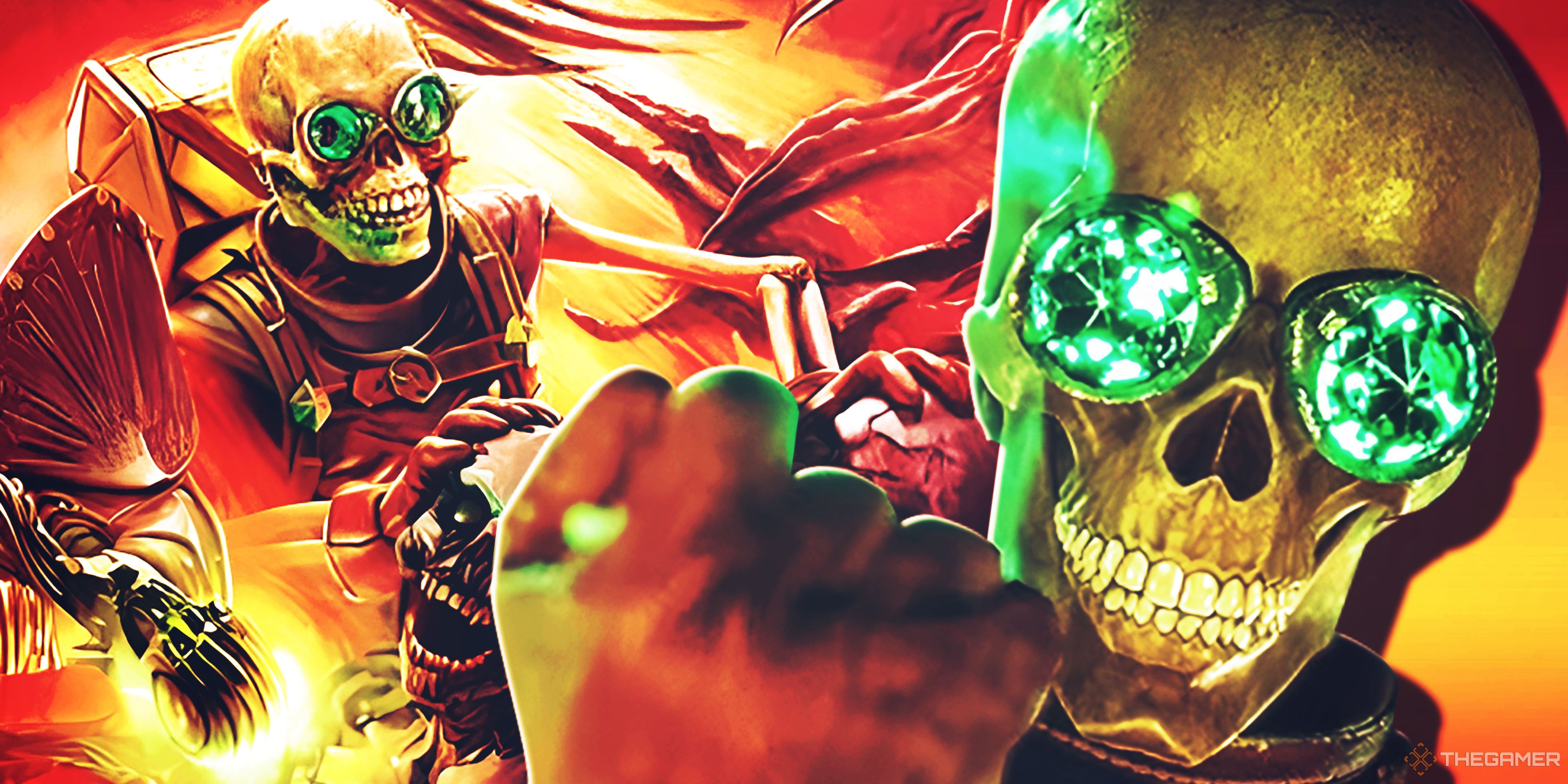
Related
Dragon Age: The Veilguard’s Best Character Is A Hissing Skeleton
Friendship ended with the Veilguard, now Manfred is my best friend.
Woke In All The Wrong Ways
Dragon Age: The Veilguard is too woke, but not because it lets you be trans or gay. By scrubbing all moral ambiguity from its characters so that every person you meet is uncontroversial and good, it sucks all the dimension out of its characters, turning them all into yes-men who always think you’re right.
There’s so little in this game that could be construed as offensive that Dragon Age’s incredibly interesting setting feels like generic fantasy fare, except for the fact that loads of fantasy settings have racism, so it’s worse than that. The Veilguard just doesn’t have what makes Dragon Age good, and what a waste that is.
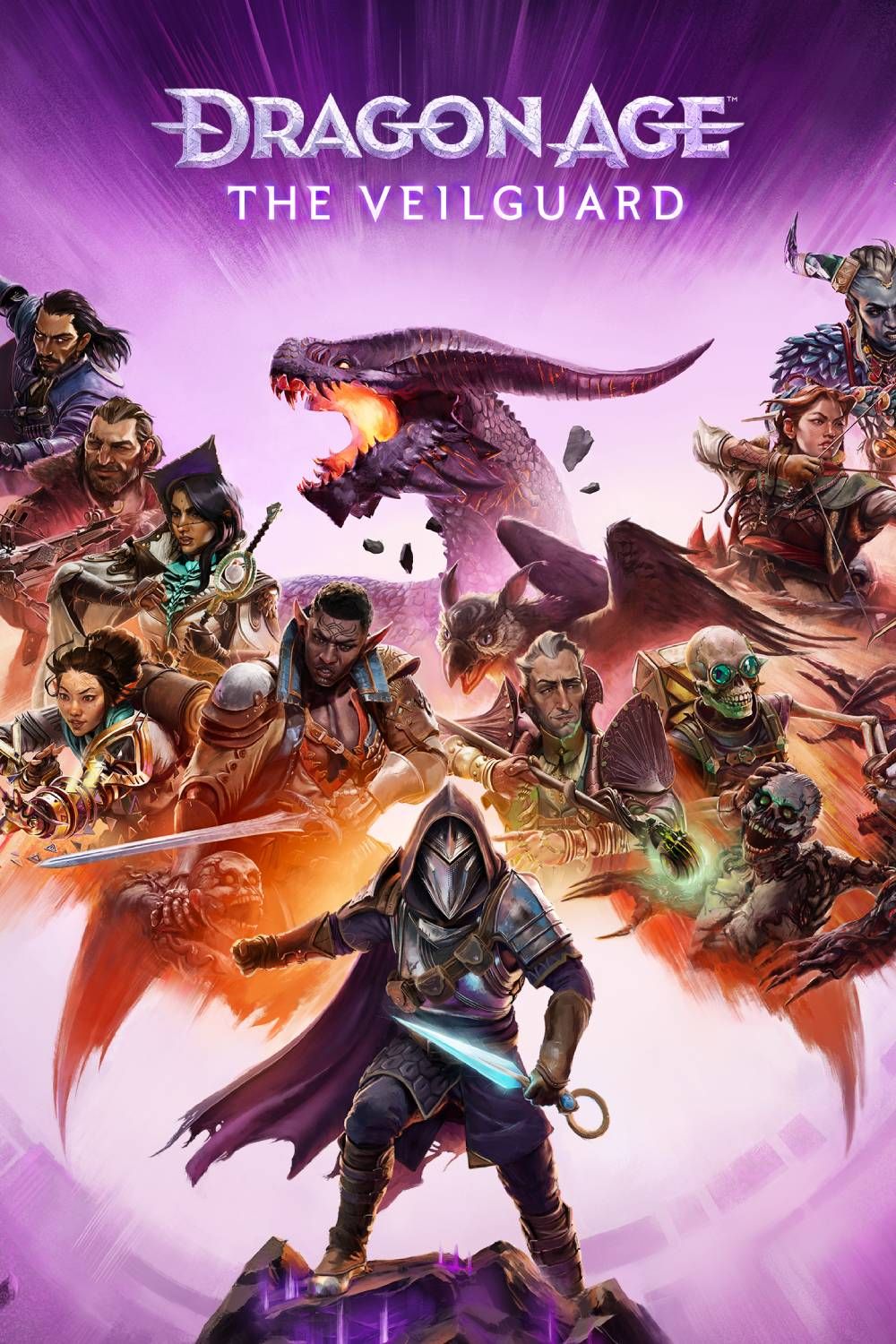
Dragon Age: The Veilguard is the long-awaited fourth game in the fantasy RPG series from BioWare formerly known as Dragon Age: Dreadwolf. A direct sequel to Inquisition, it focuses on red lyrium and Solas, the aforementioned Dread Wolf.
Source link
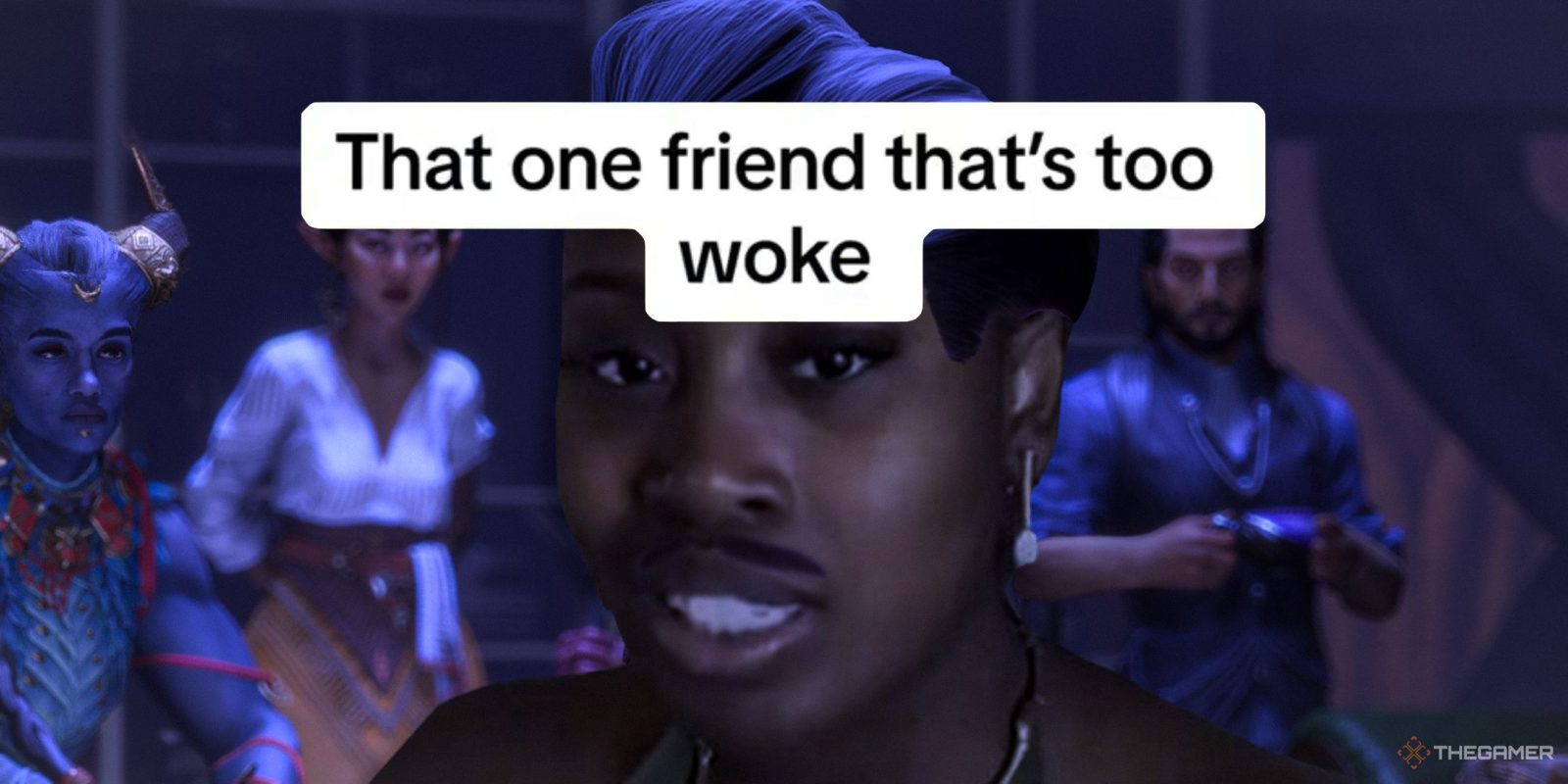



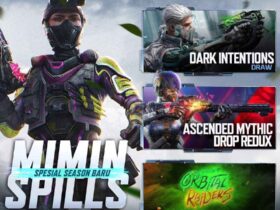


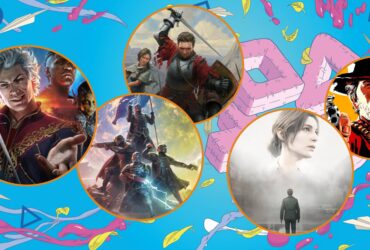
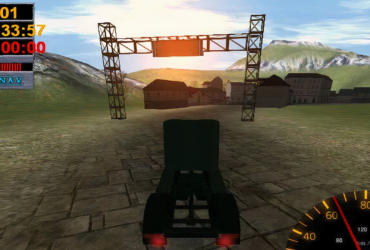
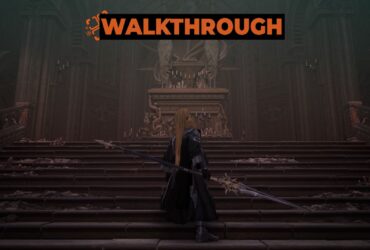
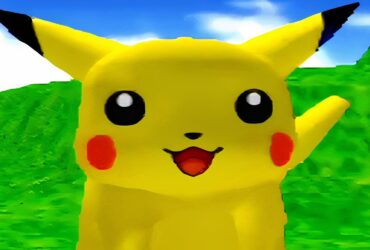

Leave a Reply